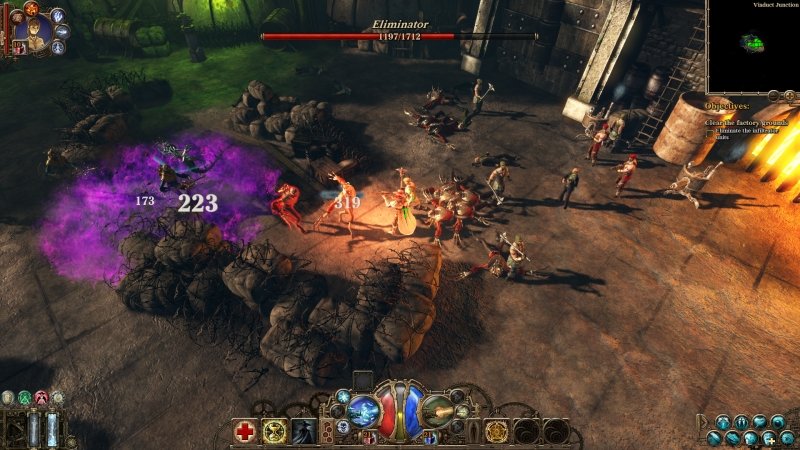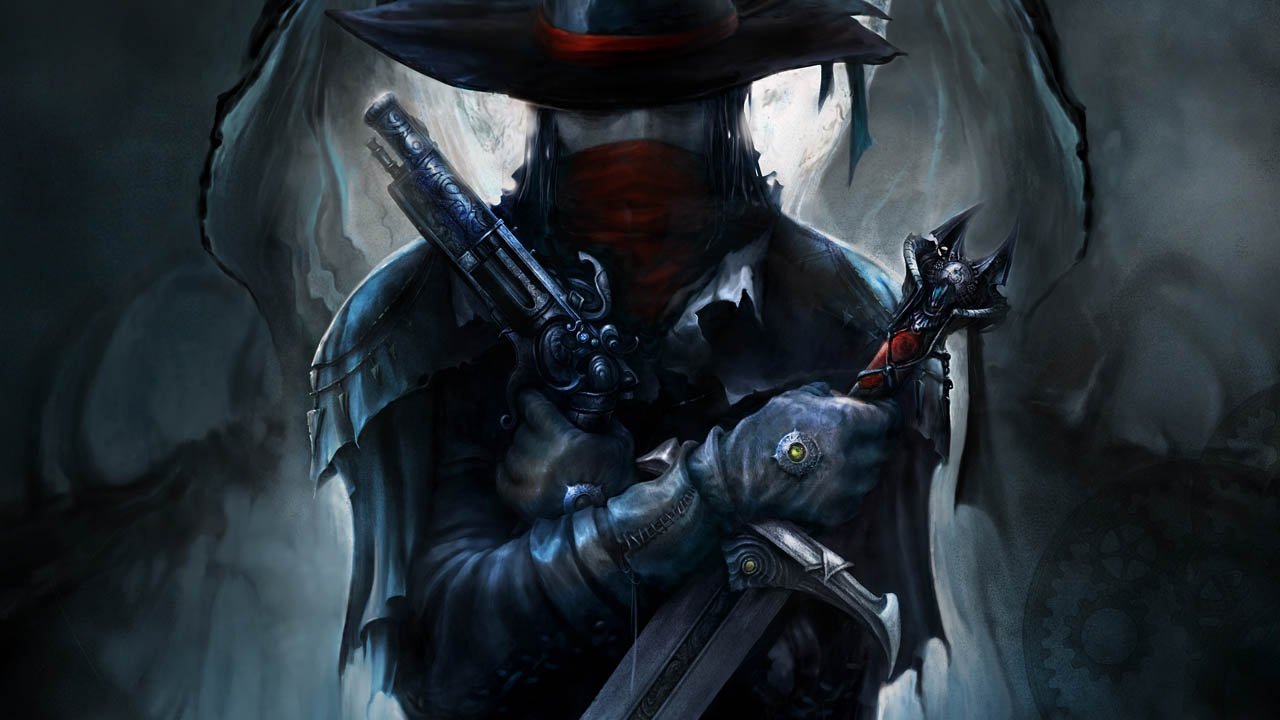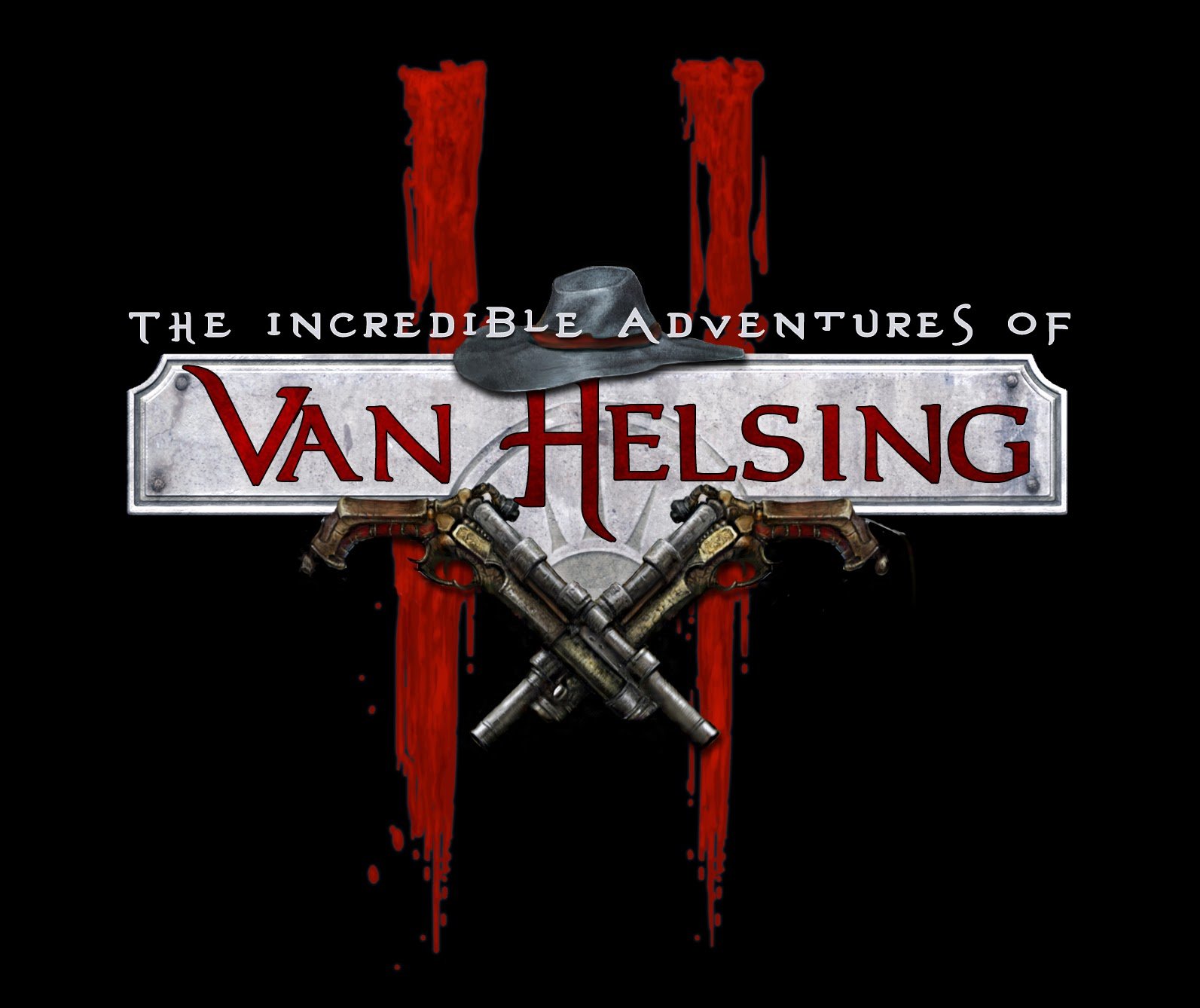I don’t know where to begin with this game. From when I first loaded it up, this game confused me with its seeming complexity, and while I understand it a bit better now, I don’t particularly like what I’ve found. I never played The Incredible Adventures of Van Helsing 2‘s predecessor, so some of the plot elements have been lost on me, but I don’t think I would come to enjoy it even more with that knowledge.
Let’s just get right into it. This game is, on its surface, a top-down action-RPG, centred around bizarre mishmash of Victorian Gothic literature culture, pop culture, and steampunk. The entire plot seems no deeper than a checklist of these elements, and follows your title character and his annoying ghost sidekick leading a resistance movement against what I assume to be Bram Stoker’s Jonathan Harker, except a military general and apparently a total jerk. It’s hard to say, since aside from references by other people, he never seems to speak or do much of anything rather than send armies of steampunk and fleshy monstrosities at you. There’s something about Koschei the Deathless in there, which offends me the most, as taking one of Russia’s coolest folklore figures and shoving him into this game is almost a travesty.

I’m hard on the plot of the game because the game fails to realize it. There IS no proper villain presented; our motivation for this game is defending a city we don’t care about and people whom we barely see – or not at all, with one character whose fate is never known. The side-quests certainly don’t do a good job of fleshing out the universe, as side-quests are supposed to do, with most of them being pointless tasks with choices that don’t seem to matter. In one of the early quests, one can release a vampire from prison, which prompts your ghostly companion to utter that “We’ve made a terrible mistake”. You never see the vampire again, and that foreshadowing never goes anywhere. That’s assuming you can even find the quests’ subject, or that it even shows up properly due to buggy journal entries.
“..the game itself is so dense and obtuse.”
It doesn’t help that the game itself is so dense and obtuse. The game’s system is a tried-and-true concept for action-RPGs, with a skill tree, health and mana, and other such staples of the style. Diablo II was a benchmark, and this game attempts to spice things up by adding on several other features that only serve to drag it down. In addition to managing not one, but three personal skill trees (with not nearly enough points to progress meaningfully in all three), you have to manage your companion’s skills, a set of ‘perks’ accessed by completing tedious and often obtuse side-quests, and one of the most complicated inventories I’ve had to dealt with. I didn’t even get anywhere with the crafting system, as I didn’t have time to ever use it. There’s even a resistance management element, where you send your four commanders and troops off on missions for your cause, which amounts to clicking and waiting a certain number of minutes in real-time for them to return with results. Considering you could upgrade your troops to maximum power in the first act, I never once lost a mission, and often one with perfect result. It’s entirely inconsequential to the game, except to allow you to skip the tedious tower defense missions that crop up from time to time, which I never really figured out.
Being complicated and layered is great for a system. Suikoden II, for example, had a ton of extra stuff beyond the main JRPG party battles, but all of it was fun and felt like it had a purpose to something other than itself. Van Helsing‘s extras are needless, and I found that many of them added nothing but busy-work to the game. Skills can be upgraded with extra modifiers than can be triggered with a Rage meter that I never found made any difference to combat. Currency is entirely worthless, as the only expensive thing you ever need can be bought in the first act; it’s not even useful for death, since dying only takes a percentage of money if you choose to respawn in the mission, and since there’s nothing to spend it on that’s worth it, death lacks any kind of meaning whatsoever. There’s even an entire half of the skill-tree that can only be accessed by level 30+ people, which is all but impossible to gain if you start at level one – you can start at level 30 for a greater challenge, but it means that it’s quite likely you’ll have to play the game again. Since none of the bland, confusing levels are randomly generated, there’s pretty much no replay value, as there seems to be really no different choices to make and no depth of story to draw you in.

All in all, I left this game feeling perplexed. Navigating multi-level steampunk environments where everything looks the same and your ability to zoom out is limited means I got lost a few times, unable to see how to get over to a place that looked right next to me. Navigating item and skill menus left me unsure of which skills I could use and how, and the user interface and its strange slotting system bothered me as well. I only wound up with four skills I ever felt like I could use, with others being downright underpowered. Top it off with a story that doesn’t seem to have any depth beyond the references it makes, and some truly staggeringly bad pop culture references (“Those were some truly angry birds.” “Don’t be such a pig! They were probably just protecting their eggs!” Oh, Don Piano.) and you’ve got a mess in every sense of the word.
I played Path of Exile. I loved that free-to-play game, even if it was the same ground Diablo II broke years ago with a few rather interesting twists in game system and story. It’s leagues better than The Incredible Adventures of Van Helsing 2 (I am so sick of this title). I recommend Path instead.





